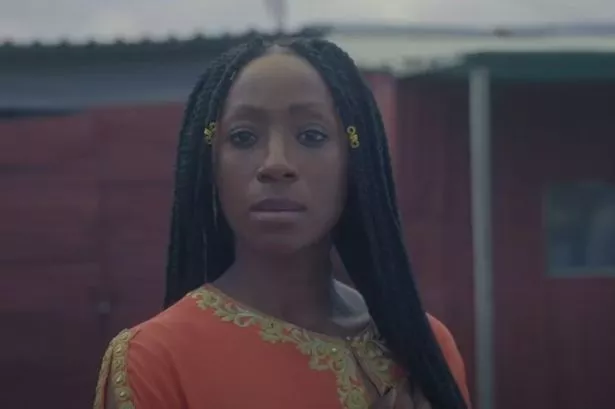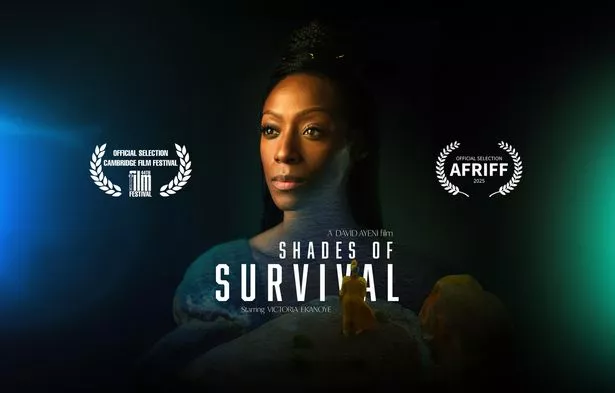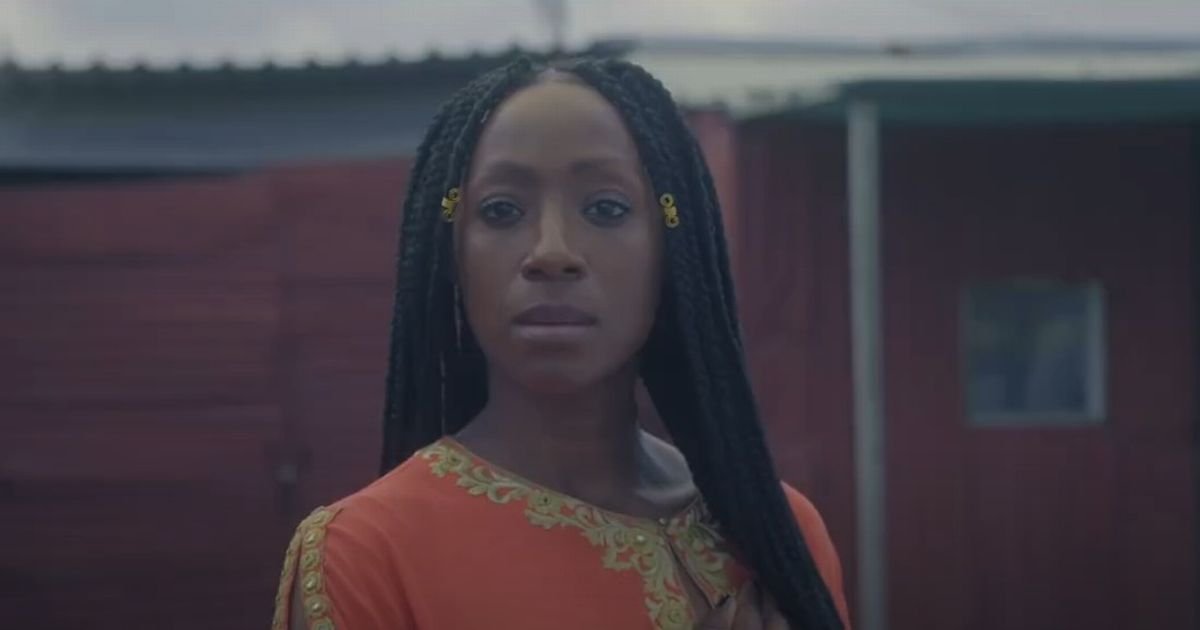“Survival shouldn’t depend on the colour of your skin”. Eye-opening documentary, Shades of Survival, tackles the stigma and inequalities in healthcare for black women across the globe Victoria tackles the topic of global stigma and inequities in healthcare for Black women(Image: Shades of Survival)
Victoria tackles the topic of global stigma and inequities in healthcare for Black women(Image: Shades of Survival)
Actress Victoria Ekanoye says women are not heard when it comes to their health – and women of colour are ‘at the bottom rung of the ladder’.
The 43-year-old breast cancer surivor will be holding a screening for her international breast cancer documentary, Shades of Survival in Manchester on October 23, with its official premiere at the Cambridge Film Festival on Sunday (October 26).
The actress – best known or her roles in the ITV soap opera Coronation Street and the E! drama The Royals – is the executive producer and leading host of the project that explores the experiences of Black women diagnosed with breast cancer across continental Africa, the UK, and the USA.
Working alongside Director David Ayeni, the documentary showcases various interviews while examining the inequalities that women of colour face within healthcare.
Victoria she was the fifth woman within her family to have developed breast cancer alongside her mother, auntie, great auntie and cousin.
Speaking to the Manchester Evening News, Victoria told us more about her own diagnosis journey and Shades of Survival.
When asked what the film means to her, she shared: “There are so many layers to it for me. In part because I’m a survivor myself. As with my mum, I’m the fifth person in my family to develop breast cancer over three generations. I had to advocate for myself in a way that you don’t expect to have to as a patient.
“I’d just had a baby, so I was a new mum, so I was already fighting in that way. I’ve been able to speak to several different women of different levels of affluence, different religions, different cultures, different countries. I just feel like the common thread is that we’re fighting to be heard, and this is a love letter to them and all those women that aren’t able to be heard, and it’s about hope.
“It’s about making change and ensuring that all of these reasons that there is health inequities, that there is some way we can help to dispel them.”
Addressing some of the stories she heard during the filming process, Victoria admitted that the director, David Ayeni, lost two close friends to breast cancer within months of each other.
Ahead of the documentary airing, one of the women’s mother has requested that her daughter be shown anonymously due to the “stigma of breast cancer”.
She said: “We had to obviously respect her mother’s wishes, but it just shows you that the weight on top of the weight that I carry, you know, as a British woman who thankfully knows how to advocate for herself, and has had the support network that I’ve had.
“This woman’s mother is so scared of what her community will think of them as a family. It can be down to culture, it can be down to religion. But in certain countries, it’s seen as God is displeased with this family and that’s why they’ve allowed cancer to grow there.
“This woman has died wanting her story out there to help other people, and unfortunately, we’ve had to tailor things to respect the wishes of her mother.”
Prior to her own diagnosis, Victoria was a patron for charity Prevent Breast Cancer. They are the only UK charity funding research into all areas of prediction, prevention and early detection of breast cancer.
Victoria exclaimed: “They’re part of the documentary, part of the screening. And the reason why is because they focus on prevention, prediction, looking at genetics. That community, the breast cancer community, it’s a community of people out there who just get it, and you don’t feel alone.
“There isn’t anything that you can’t talk to them about or any questions that you might feel, shouldn’t really ask this. I’ve had the most incredible support network with my mum, my sister, my partner, my friends, and then obviously I’ve had my little boy, Theo, who keep us all smiling.
“I do think it’s imperative that we do have more systems in place where people can go and be fully understood, fully heard, and helped with everything. You know, this is a global issue. Women in general just aren’t heard, and unfortunately, women of colour are at the bottom rung of the ladder.”
Victoria is hopeful that there will be more concrete changes made within the healthcare system, with them already drafting letters to Parliament and mandate bias training across the NHS.
She added: “This isn’t just it for us, it’s not just a film or a documentary, it’s a movement, and we have so many people on board, Cambridge universities on board… This is a systemic issue that has been a problem for a very long time, and it will take more diversity I think when it comes to those people making the decisions at the time.
“Survival shouldn’t depend on the colour of your skin.”
 The film gives a harrowing insight into the reality of the breast cancer diagnosis for many women globally(Image: Shades of Survival)
The film gives a harrowing insight into the reality of the breast cancer diagnosis for many women globally(Image: Shades of Survival)
Reflecting on finding a lump as she was breastfeeding her son Theo, Victoria shared: “When I found that lump, I went for an ultrasound. This was in France.
“Ten days later, I went for a second opinion and they again told me they thought I was fine, maybe a few calcifications in my breast, but no medication, no follow-up treatment. They just said, keep breastfeeding, until your son is a year old, which meant another 6 months, and then, and then let your milk dry out.
“Come back for a mammogram just so that we can be safe. For me, you’re telling me you’re not 100% sure and I just had a baby. I can’t live like that. I just booked Death in Paradise, so I flew out to Guadeloupe with my son and then I’m still breastfeeding.
“I remember adjusting the microphone, and finding a second lump. In that moment, I was angry and I didn’t know what to do because, you know, I’ve been told by medical professionals and this isn’t about, don’t believe the doctors, it’s about you to also say things if you’re not comfortable with the diagnosis or misdiagnosis.
“So I just kind of took myself off to one side, gave myself a look, sort of just ‘get through these few weeks, get home’, and a lot of people don’t go to the doctors, so they go, ‘oh, I don’t want to bother them, it’s fine, I’ll be fine’. But that’s what they’re there for. So we have to.”
When asked if there’s a message she’d like to send out, Victoria replied: “I think the main thing for me is to know your body. It doesn’t take away what doctors can do. It doesn’t take away what medication can do. But ultimately, if we aren’t aware of what’s going on with our bodies and our changes, we can’t present to the doctor in the first place.
“Get out your calendar, get out your diary, whatever, maybe if you’re old school. And once a month, you just do a full body check. Just make sure that there are no major changes, and if there are, get to the doctor, because you have to know what your normal is, what your baseline is. And once you know that, then if there are any changes to catch it as early as possible, and that is your best chance of surviving.
“I think that’s been the overwhelming message that I’ve been speaking to, friends, family, even people that I’m up and chatting to from the documentary. It’s our own lifestyles. this is literally the one body we’ve got. And so what we eat, what we put in it, what we eat, what we put on it, it all matters.”
She concluded: “I know that I’m here now because I, number one, obviously advocated for myself, but because I was so aware of my body, that when it felt wrong, and they said it was okay, I knew to push again.”
Victoria is working on many exciting new projects currently, with her also soon to star in the new Paramount+ series Baby Doll opposite Alfie Allen and Jill Halfpenny.

